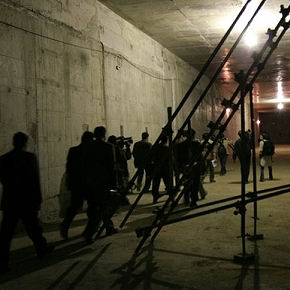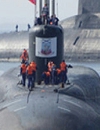More U.S. Sanctions Against Iran to Follow - Obama
The United States will continue to impose sanctions against Iran over its controversial nuclear program, U.S. President Barack Obama said.
The previous set of U.S. sanctions targeting Iran’s Central Bank and its oil revenues was imposed on December 31. On Monday Treasury Department announced new sanctions on Iran’s Bank Tejerat.
“The United States will continue to impose new sanctions to increase the pressure on Iran,” the president said in a statement. “We will continue to increase the pressure unless Iran acts to change course and comply with its international obligations.”
The statement comes hours after foreign ministers of the 27 EU members slapped an embargo on Iranian oil supplies on Monday. The toughest measure yet to force the Islamic Republic to drop its controversial nuclear plans and return to negotiations, the move stipulates an immediate ban on all new oil contracts with Iran, while existing contracts will be honored until July 1.
Obama said he “applauded” European Union’s decision, adding that “these sanctions demonstrate once more the unity of the international community in addressing the serious threat presented by Iran’s nuclear program.”
Earlier in the day, U.S. Treasury Secretary Timothy Geithner and Secretary of State Hillary Clinton praised the EU move as “strong step” to “dramatically increase the pressure on Iran”, consistent with measures taken by the U.S.
“Taken in combination with the many other sanctions on Iran that continue to be implemented by the United States and the international community, this new, concerted pressure will sharpen the choice for Iran’s leaders and increase their cost of defiance of basic international obligations,” a joint statement by the two U.S officials reads.
Leaders of France, Germany and the United Kingdom also issued a joint statement, calling on Iran to fulfill its nuclear obligations and saying that they leave the door for Tehran open for “serious and meaningful negotiations about its nuclear program.”
British Prime Minister David Cameron, German Chancellor Angela Merkel and French President Nicolas Sarkozy said they “will not accept Iran acquiring a nuclear weapon,” the statement reads.
British Foreign Secretary William Hague said the decision to impose sanctions was an “action made necessary by Iran's defiance of six UN Security Council Resolutions and its refusal to enter negotiations”
“Iran has it in its power to end sanctions by changing course and addressing the concerns of the international community,” Hague said. “We are ready to talk at any point if Iran puts aside its preconditions.”
Russian Foreign Ministry denounced the sanctions in a statement on Monday, saying that they are ill-advised and likely to backfire.
“It’s an obvious pressure and dictate, an attempt to ‘punish’ Iran for stubbornness. This is a deeply wrong policy, and we have repeatedly pointed as much to our European partners. Iran would make no concessions under such pressure,” the statement said.
Iran's Foreign Ministry spokesman Ramin Mehmanparast described the sanctions as a “psychological war” against his country and said any country that wants to deprive itself of Iran's vast energy reserves will be "immediately replaced by other countries," Iran’s English-language Press TV said.
He also said the EU had adopted the decision under the political pressure of the United States, and advised the bloc to value its interests instead of bowing to Washington.
"It seems the American authorities want to disrupt the energy sources of their rivals and weaken their economic rivals under the pretext of piling up political pressure on Iran," the spokesman said.
Western nations suspect Iran, which is already under four sets of UN Security Council sanctions, of pursuing a secret nuclear weapons program but Tehran insists it needs nuclear power solely for civilian purposes.
Tensions over Iran's nuclear activities have reached boiling point since the Islamic Republic announced earlier this month that it had launched a nuclear enrichment program at a well-protected underground facility near the city of Qom.
Tehran has threatened to block the Straight of Hormuz, a strategic waterway where an estimated 40 percent of the world's seaborne oil passes, in response to Western plans to ban Iranian oil imports.
Sergey Kiriyenko and Daniel Poneman signed the agreement.
In September, Iran officially opened Bushehr which was completed with Russia's assistance after a long delay.
Unit went online on Monday.



